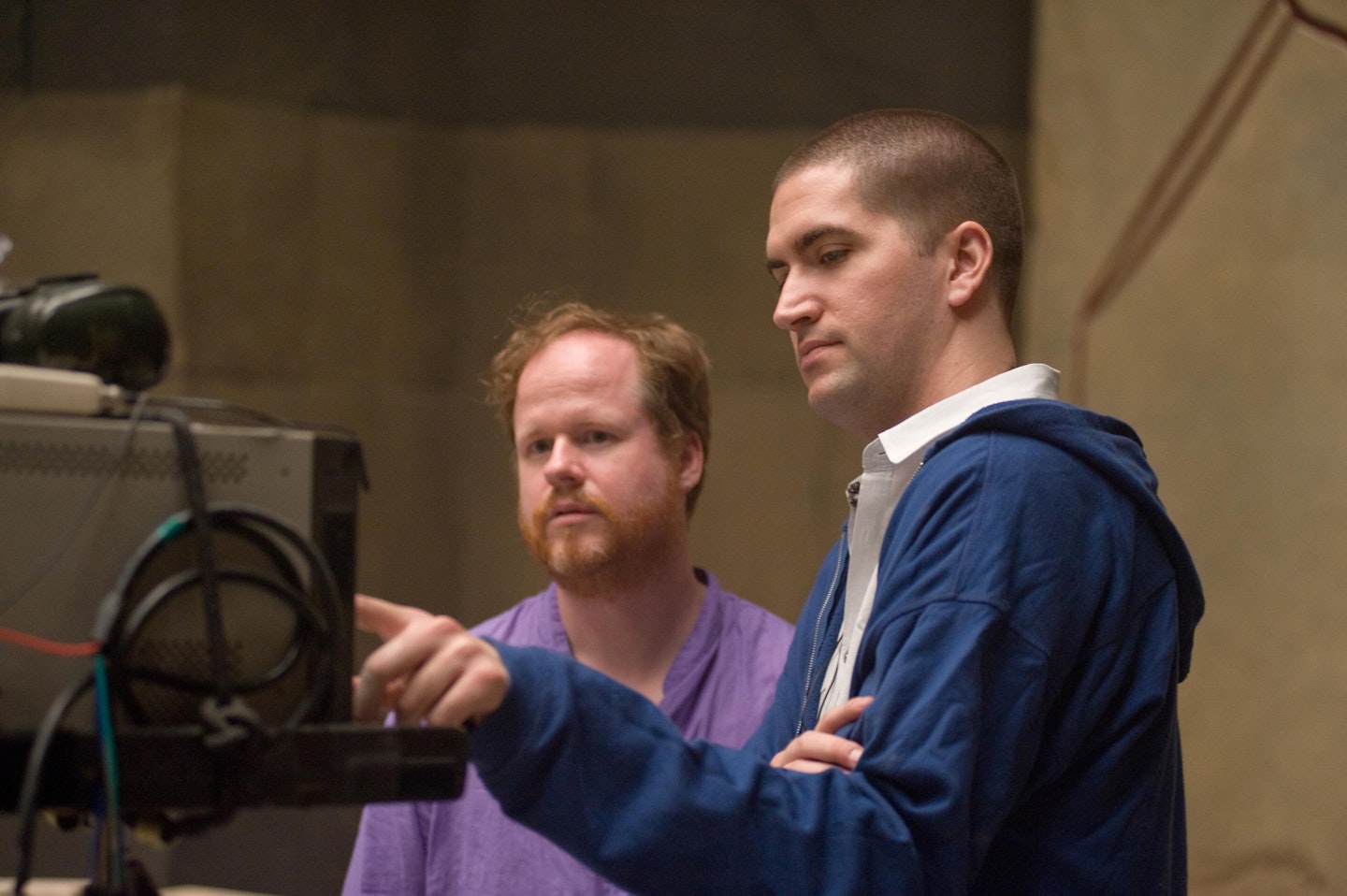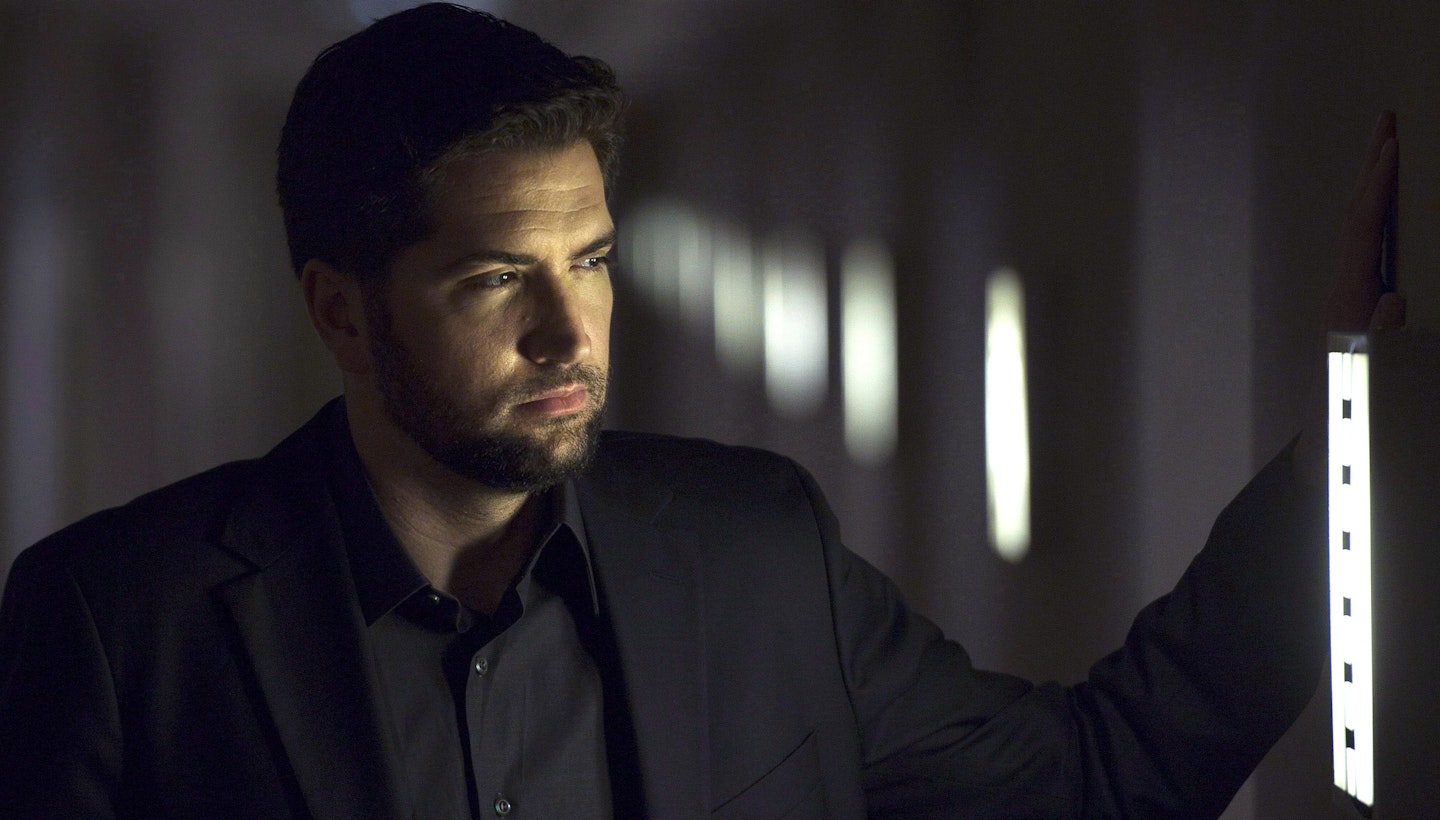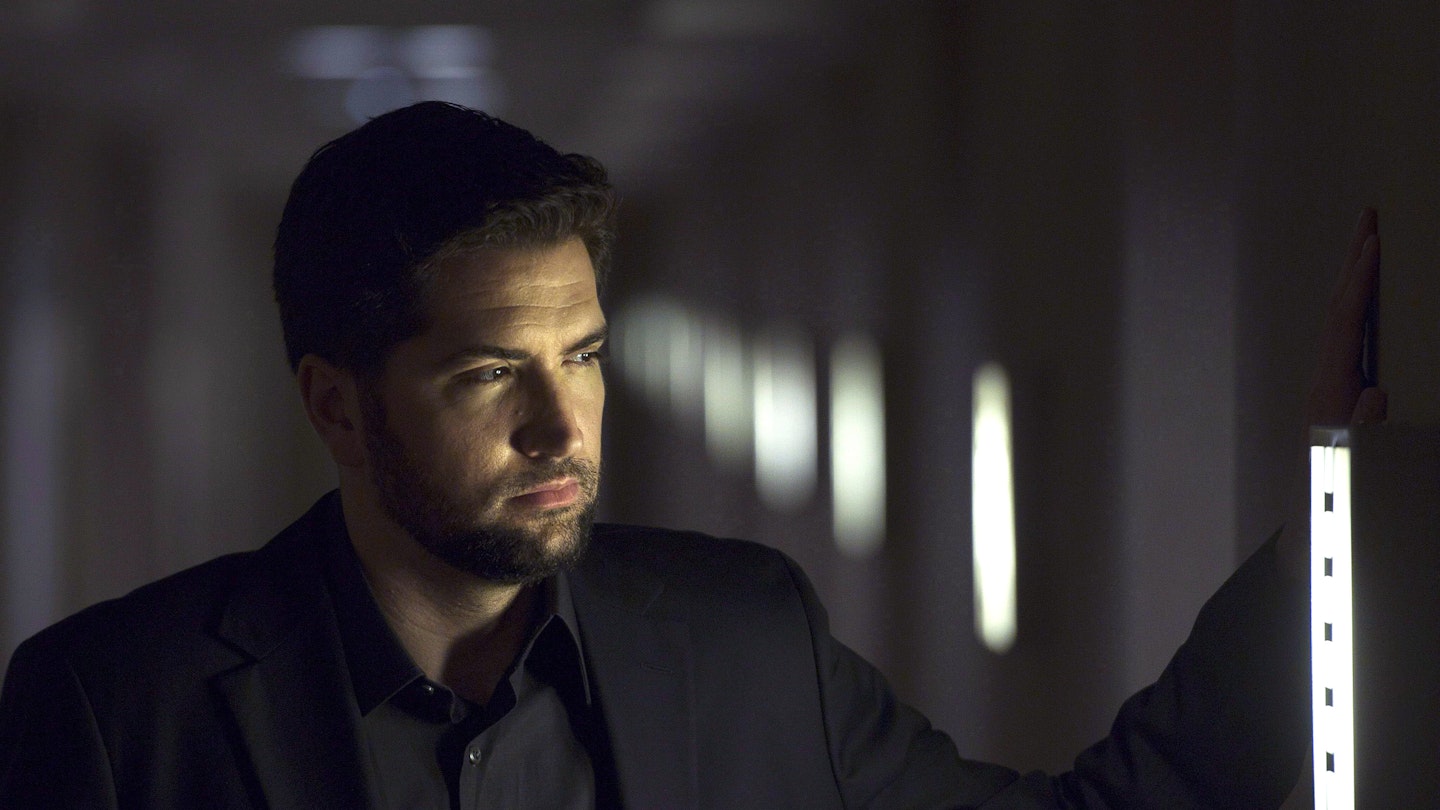From staff writer on Buffy to director of The Cabin In The Woods, Daredevil adaptor-in-chief and now Oscar-tipped screenwriter of The Martian, Drew Goddard has merrily skipped from genre to genre with the zest of a man who prizes a good story over all else. Even with two scripts, Sinister Six and Robopocalypse, in limbo, his Hollywood future glows brighter than a NASA afterburner. Empire met him in London to discuss his projects to date, uncovering a secret passion for disco along the way.
Am I right in thinking your screenplay is the first to have been sent into space?
I haven’t done enough research to know if others have, it’s certainly unique for me. We don’t have it back yet. Ridley’ll get it. I should find out where it is! It’s funny, because the first Ridley doodle of the suit [on the script] looks like the one Matt [Damon] wore in the film.
Matt Damon said that there aren’t a lot of this type of script out there at the moment. Does that influence you in what you want to write?
The truth is that I love superheroes and I love weird horror films… I could definitely feel that there was a lack of movies like The Martian being made: smart genre movies that can appeal to adults. That was exciting.
You made a movie in which Sean Bean doesn’t die, but you do have the next best thing...
That’s right, he has the worst misfortunate other than the hero. No-one else gets fired. It’s a NASA death (laughs).
So there’s no forgiveness for his character’s actions?
Well, I think that’s in there. One of the things I liked about that scene in particular is that Sean knows that what he’s doing is going to get him fired, and Jeff [Daniels] knows why Sean does it, so they both respect where the other is coming from. However, the consequences have to be obeyed, otherwise we have no moral order. I like that they both have two very reasonable [perspectives], and that’s partly why we wanted to show Sean enjoying his retirement, playing golf with his grandson. He’s okay with that as well (laughs).
The Council of Elrond scene is a crowdpleaser but is it true that it nearly got cut?
It’s an eight-page scene and that’s usually a no-no. Usually you’re going to end up cutting it later, so you don’t want to shoot it. If you think that you’ve got to cut three pages from the eight-page scene, you can’t cut the discussion they’re having because that’s the point of [the scene], so the only thing you really can cut is the fun – which, by the way, is what happens all the time. Ridley pointed out that that could be cut. Even as the writer you think, ‘Yeah, you’re probably right.’ If the director is telling you the scene is too long, it’s going to be too long. God bless him, our executive Steve Asbell said, ‘No, no, no’.
If you get a laugh that big, it almost starts the scene over for the audience.
That’s what we realised. Ridley solved that problem by making it feel like three different scenes, blocking the actors in such a way that they move so it’s not just a bunch of people sitting around a table, which is how it was written.

There’s a nod to Alien, too. Are those meta moments something you’re wary of as a screenwriter?
You just try to feel it out. I try not to get too cute for cute’s sake. The Elrond reference was there before we cast Sean Bean, and when we cast Sean Bean we wondered if we should change it because it might seem we were getting too clever, but we just liked it. The reason it’s important to have references in The Martian is that you need to tell audiences that this isn’t some crazy future time, this was today. Well, it’s 20 years in the future but it’s still our culture. If you go to NASA, people love Lord Of The Rings.
Writing is a solitary business. Did you feel a connection with Mark Watney?
I think so. I don’t know that it was ever in my head at the time but looking back, very much so. One of the things that attracted me to the book was this combination of loneliness and optimism. Normally you don’t see those two things together in drama, but my experience as a writer is certainly about those two things. I do love writing but it is a lonely profession. You’re lonely and optimistic at the same time. Those two things connected with me at the time. I look at it now and so much of this movie could be read as a metaphor for the creative process. It’s a guy stuck by himself and other people are out there trying to help him (laughs).
So which character is Ridley? Jeff Daniels?
It’s funny, we joked about it. Ridley could be Jeff Daniels and Mars and Matt Damon could be the movie, and in that version the writer is definitely Bruce at JPL. The guy Benedict Wong plays who’s constantly being told that he doesn’t have enough time.
There's a lot of disco in The Martian. Did you listen to disco while you were writing it?
I did. I tend to write to whatever fits the vibe of the movie. That was one of the things that attracted me to doing this movie. It gave me an excuse to listen to all my old disco hits. A lot of them made it into the soundtrack. One of the very first ideas I had was ‘Waterloo’ playing while Matt destroys the spaceship. Ridley put some other ones in that I didn’t even think of. That’s the fun part of the process, arguing over which disco hit goes where.
What was your Wilson Fisk music writing Daredevil?
I was listening to Fuck Buttons all the time, and The Rolling Stones. Even though they’re British, I wanted Daredevil to have a ‘60s autumnal feel and The Stones had that.
Were you clear how far Fisk would go with the violence from the beginning?
Yeah, the first things I pitched to Netflix was the end of episode four with the car door. I said, ‘This is what you need to understand. I don’t want to see this character do violence until someone is mean to Vanessa and then he goes insane. We want to set our compass to that.’
The protective psychopath is an unusual archetype.
It’s a weird archetype because in some ways he has the more defined arc for the season than our hero does. We intentionally flopped the traditional protagonist and antagonist arcs in season one, because Steve DeKnight and I both respond to villains and we wanted the villain to have as much emotional depth.
How do you feel about binge watching?
We’re feeling it out, to be honest with you. I still like episodes, and specifically endings of episodes. The same when I’m reading a book, where the last sentence of a chapter is always powerful. I like the idea that this chapter is about this, and this chapter is about this. It can be a little frustrating when everyone just watches it all. I suppose I should take it as a good sign that they’re enjoying it, but I still push us as a staff to not be afraid to switch it up. What I don’t want is for it to feel like one long 12-part story. Then everything becomes about plot. What I liked most about Daredevil is the episodes that feel like they have a beginning, middle and end, like Steve’s episode with Fisk – episode nine – feels like it could be told as its own story, yet it fits beautifully into the structure.
Have you written a Sinister Six script?
Yes.
Was it more fun to write those characters we haven’t seen introduced into the Spider-Man universe?
It’s weird, to me all of these characters exist so it never feels new to me. The approach is the same because it’s still about how those characters are.
Do you have a favourite to write?
Spidey is the most fun. I don’t know that I have a favourite of the six.
What was the last conversation you had about Sinister Six?
Look, we’re not making it anytime soon. I wish I had more information.
And the same applies to Robopocalypse, I imagine?
This is why I don’t get too cynical about these things. All movies are alchemy and time is one of the ingredients that goes into the alchemy. You want the time to be right; you don’t want to rush it. You need the right script, the right cast and the right feeling in the culture. All those things need to come together if you want to do it correctly and Steven [Spielberg] wants to do it correctly. Steven’s not a guy who will rush something just to make a release date.
The book has a global span. Does the script match that?
It does. That’s one of the things that attracted me to it.

Do you still try to get a sense of what makes the villain tick, even when it's an A.I.?
I still approach it the same way. [The main A.I.] Archos is the villain in the book and giving him/her a point of view is crucial.
Did you have a voice in your head?
Very much so. I guess it’s male because it’s a boy in the book, but I didn’t write him as human. I hope that one comes together soon. That’s a good one.
Lastly, there’s no Martian in The Martian. Is there one in Cabin In The Woods?
There’s an alien in there, although we’re not sure where he comes from. Let’s say Mars for now (laughs).
The Martian will be out on DVD and Blu-ray in 2016.
